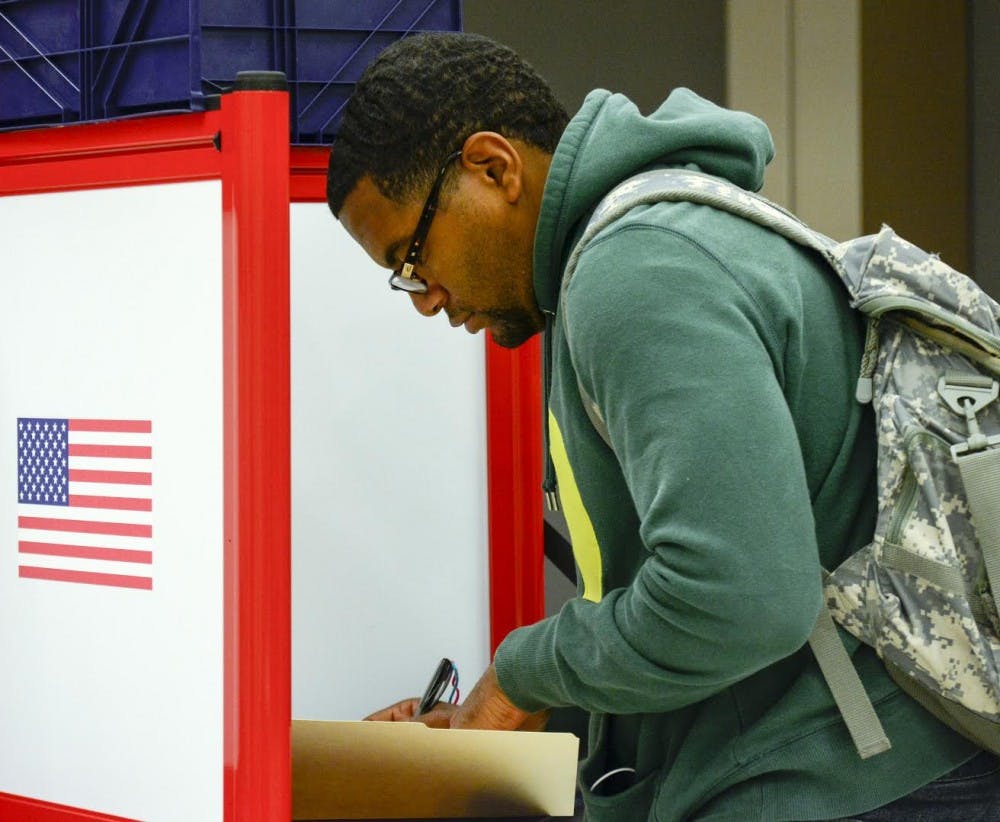Thousands of IU students might find themselves affected by election stress if a survey conducted by the American Psychological Association is accurate. The survey said 52 percent of American adults ages 18 or older report that the 2016 election has been a very or somewhat significant source of stress, and mental health experts have a few suggestions on how to deal.
Dr. Natalie Dattilo, a clinical psychologist and adjunct professor at Indiana University School of Medicine, said the best way to dispel anxious feelings about the election is to find simple distractions like taking a walk or watching a movie.
“If it’s become so difficult that you can’t even distract yourself, that’s when we would get a little bit more concerned,” Dattilo said.
Dattilo suggested people who find themselves heavily affected by election-related stress try meditating to lower their heart rate and practice breathing low and slow on a regular basis.
“Just remember that after November 8, life will go on no matter what the outcome is, and no one single elected official is going to affect your life in any significant way,” Dattilo said. “You are still in charge of your own destiny.”
Dattilo said what some call ‘election stress disorder’ is not an actual disorder that medical professionals are diagnosing, but rather a way to address the stress people are feeling about this year’s election in particular.
“What they found is that it doesn’t matter what your political affiliation or leaning is,” Dattilo said. “It’s affecting everyone.”
Dattilo said she thinks students may experience elevated stress over conflicts with family concerning political opinions because millennials have a collective sense to do the right thing and right the wrongs of generations past.
“You may be getting influenced by family who might feel differently, but you have to make the decision that’s best for you,” Dattilo said. “It’s also important to realize that everyone is entitled to their own opinions.”
Dattilo said parents should be able to keep a level head about these topics, but if it is inevitable that a political conversation between family members is going to end badly, it might be better to set limits and agree not to discuss certain things.
“It’s not your job to convince your family members or friends to see things exactly the way you do,” Dattilo said.
Nancy Stockton, director of Counseling and Pyschological Services, said most undergraduate students who come to CAPS are concerned with the problems that brought them to counseling, and do not usually tie those problems to election stress.
“Graduate students are much more likely to express anxiety about elections and talk about how the election is affecting them,” Stockton said.
Stockton said the way students should deal with differences of political opinion within their own families depends on the strength of the areas of disagreement.
She advises students in these situations to either to explicitly or implicitly agree to disagree and recognize that it is unlikely anyone’s mind will be changed.
“If people are a little more open and flexible, a good idea would be to try to center discussions about politics on common ground,” Stockton said.
Stockton said issues like infrastructure, prison reform and, to some extent, protection of the environment are issues candidates from different parties tend to agree on, so students can try to find that common ground when talking politics with their families.




